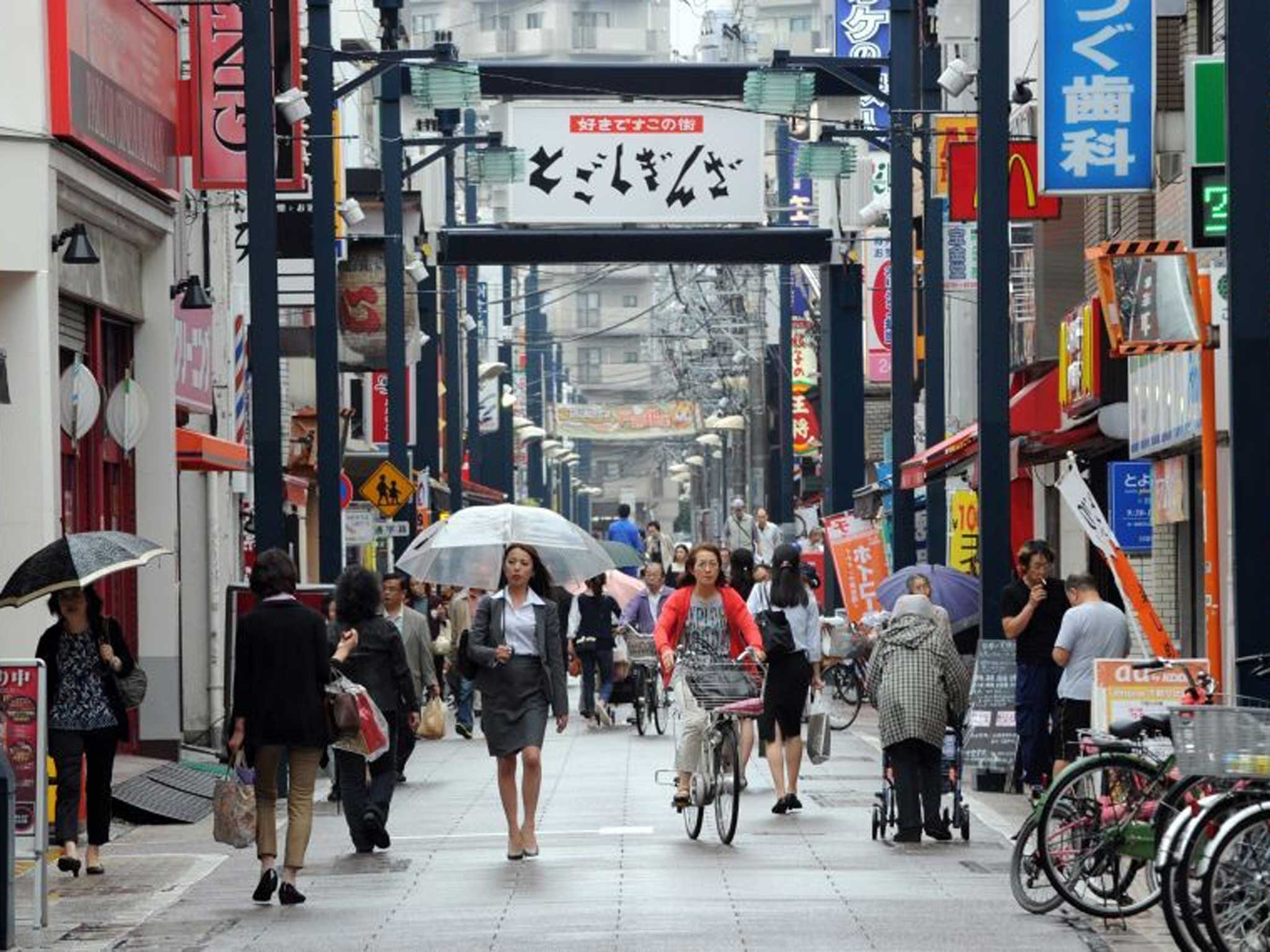Is the sun rising on Japan – or is this just another false dawn?
'Abenomics' seems to be doing the trick for the second-largest economy after two 'lost decades'. Danielle Levy reports

Could it really be true, could Japan be back? After two "lost decades" the stimulus programme of Prime Minister Shinzo Abe, dubbed "Abenomics", nearly a year old, seems to be doing the trick, at least as far as investors are concerned. The Nikkei 225, so often the world's stockmarket poor relation, is up by a staggering 46 per cent since Mr Abe was elected. The UK's FTSE 250, by comparison, is up 26 per cent over the same period.
However, it is a journey that has hit some bumps along the way. This is best demonstrated by a 20 per cent market fall in late May after Federal Reserve chairman Ben Bernanke announced the US central bank's intention to end its quantitative-easing programme, sending global markets haywire. Since the sell-off bottomed on 13 June, the Japanese index has recovered by 8 per cent, with some taking the view that earnings can continue to grow.
The average Japanese equity fund is up 33 per cent since mid-December, while the Legg Mason Japan Equity fund has proved the best performer over the period with a staggering 80 per cent return for investors, followed by the Invesco Perpetual Smaller Companies fund which rose 65 per cent.
With these stellar returns in mind, has the easy money been made?
Ruth Nash, manager of the JOHCM Japan fund, says smaller companies with a domestic focus are the ones to watch.
"Although the first result of Abenomics has been to weaken the yen and boost the profits of exporters, ultimately it is a strategy designed to boost the domestic economy and domestic stocks, and these remain extremely undervalued," she says.
As a result, her fund is investing more than ever in small and medium-sized companies.
"Mid and small-cap stocks are where the extreme undervaluation can be found in this market. If, as we believe, this really is the start of a long-term bull market in Japan, then the market as a whole will re-rate. Large caps will perform well, but the performance of mid and small caps could be extraordinary," says Ms Nash.
Legg Mason Japan Equity manager Hideo Shiozumi, on the other hand, is targeting what he describes as companies of the "New Japan": those that can take advantage of opportunities with the elderly population, changes in the lifestyles of consumers and a broadening, internet-oriented economy.
For Andrew Wilson, head of investment at wealth manager Towry, much depends on whether Abenomics can genuinely reflate the Japanese economy. If this happens, the rally could be sustained and even those getting in now could make a killing. "There are many sectors and stocks with incredible upside," he says. "Banks would presumably be a good place to be.
"However, Mr Abe needs incomes, spending and investment to rise soon, as the negative impact of inflation is already being felt via high energy prices, for example."
But JPMorgan's market strategist Andrew Goldberg casts doubt on Japan's recovery. He points out that wages are still falling and national debt is roughly two and half times the level of the UK's.
But Abernomics isn't just about trying to get people spending. It is also about a dose of what could be called Thatcherism, but Japanese-style.
The notoriously inflexible Japanese labour market is to be overhauled, free-trade agreements entered into, and state enterprises privatised. This will be the major test, fund managers in the sector suggest.
"Like many I am deeply sceptical Japan can come up with meaningful structural reform, says investment director Michael Stanes of Heartwood Investment Management.
"We think the fundamental problems have not really gone away and we look at what has happened so far as a cyclical improvement rather than a structural lift-off."
He highlights immigration and the structure of the labour market as two obstacles.
"Everyone says Japan is very cheap. It is cheap if you believe in the sustainable improvement in returns – and we do not," Mr Stanes adds.
Jupiter Japan Income manager Simon Somerville is more upbeat, taking the view that the government's measures to support further investments and wage rises can help.
Given this complex backdrop, should Japan form a meaningful part of your portfolio?
Juliet Schooling Latter, research director at fund broker Chelsea Financial Services, says the time could be ripe for investors who are light on Japan to increase their allocation.
"The majority of UK investors will be underweight Japan, although global portfolios will have a higher weighting than they have had for many years," Ms Schooling says.
"For these people I think there is still enough of an opportunity to consider increasing this weighting a little."
She suggests the GLG Japan Core Alpha and JOHCM Japan funds as her top active fund picks.
Towry's Mr Wilson, on the other hand, highlights Schroder QEP Japanese Core fund, an enhanced index fund, as a cheaper way in which to gain exposure.
Whichever way you choose to invest, further bumps in the road will happen as the Japan goes through its great financial experiment.
Danielle Levy is a Citywire reporter
Join our commenting forum
Join thought-provoking conversations, follow other Independent readers and see their replies
Comments
Bookmark popover
Removed from bookmarks